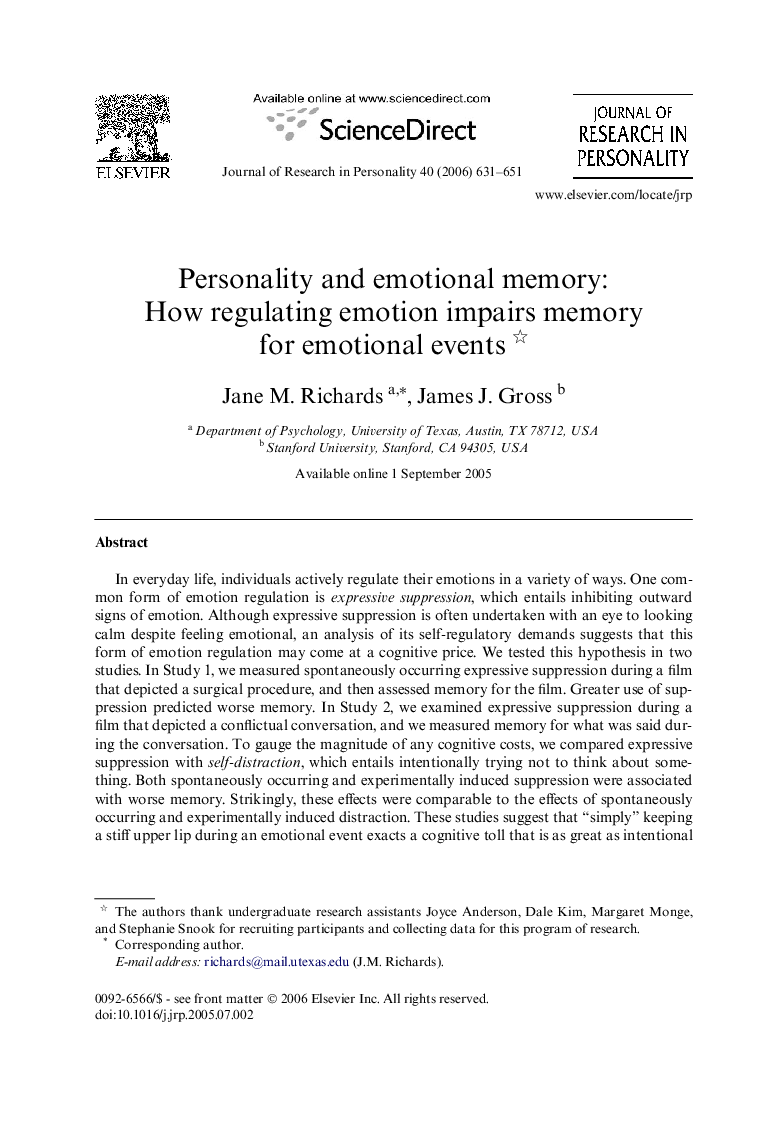| Article ID | Journal | Published Year | Pages | File Type |
|---|---|---|---|---|
| 951981 | Journal of Research in Personality | 2006 | 21 Pages |
In everyday life, individuals actively regulate their emotions in a variety of ways. One common form of emotion regulation is expressive suppression, which entails inhibiting outward signs of emotion. Although expressive suppression is often undertaken with an eye to looking calm despite feeling emotional, an analysis of its self-regulatory demands suggests that this form of emotion regulation may come at a cognitive price. We tested this hypothesis in two studies. In Study 1, we measured spontaneously occurring expressive suppression during a film that depicted a surgical procedure, and then assessed memory for the film. Greater use of suppression predicted worse memory. In Study 2, we examined expressive suppression during a film that depicted a conflictual conversation, and we measured memory for what was said during the conversation. To gauge the magnitude of any cognitive costs, we compared expressive suppression with self-distraction, which entails intentionally trying not to think about something. Both spontaneously occurring and experimentally induced suppression were associated with worse memory. Strikingly, these effects were comparable to the effects of spontaneously occurring and experimentally induced distraction. These studies suggest that “simply” keeping a stiff upper lip during an emotional event exacts a cognitive toll that is as great as intentional cognitive avoidance. We argue that efforts to understand links between emotion and memory must consider emotion regulation.
